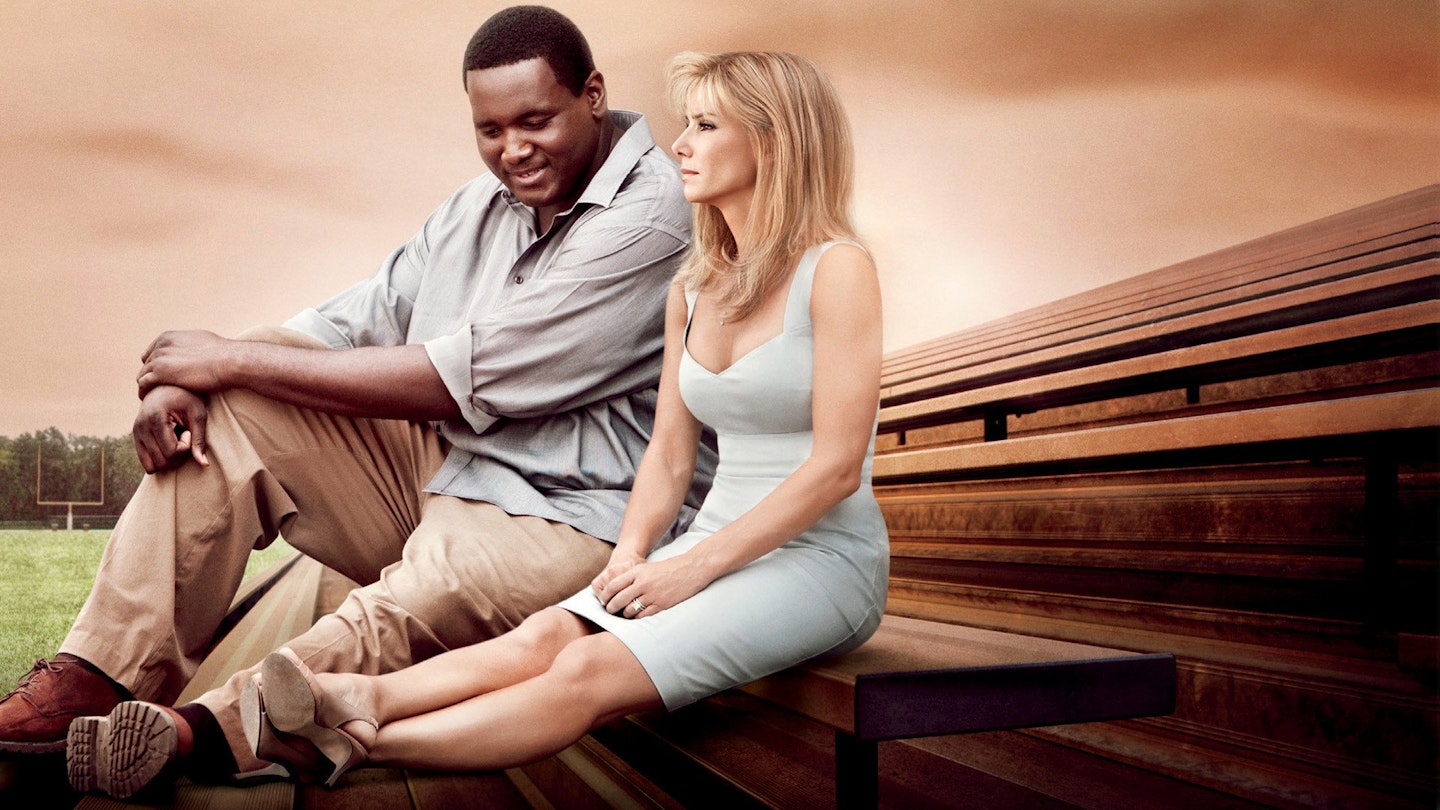In the big blue shadow of Avatar, The Blind Side emerged as a minor phenom and hot-button talking-point at the end of last year. Confirming Bullock’s golden year at the box office — at a time when adult dramas were belly-flopping, The Blind Side pulled in $241 million — yet drawing criticism as a reactionary version of Precious (white family rescue poor black kid who subsequently gets marginalised in his own story), the film is
a sugar-coated, efficient, entertaining mix of sports movie clichés, it’s-hard-out-there-on-the-streets flashbacks and crusading-woman-takes-on-the-system drama.
Although it’s based on a true story, writer-director John Lee Hancock takes a broad movie-movie tone that stretches credibility almost to breaking point. As Big Mike (Quinton Aaron, who does a good line in vulnerable) gets inducted into the Tuohy family, struggles to get his grades up and tries to make it into the football team, this is never parlayed into compelling, believable drama — the stakes only get raised when he tries to get into college, but even these scenes are diluted by the presence of his younger brother acting as his agent.
Somewhere in this story there should be true grit — the scenes of Big Mike’s neighbourhood feel like a Disneyland version of The Wire — and Hancock, for all his emotional directness, decides to ignore it completely. Yet the movie’s saving grace is Bullock, seemingly a lock for a Best Actress Oscar, who niftily switches between big crowdpleasing moments, bossing around burly US football players, telling rednecks to pipe down or taking on Big Mike’s crack-dealer cohorts, and quiet scenes with her husband (country singer Tim McGraw, extremely likable). Bullock’s Leigh Anne is a feisty force of nature and she beautifully mixes up stinging sass, an iron will and unadulterated sentiment.
It’s a performance and a film (like Avatar) built on simplicity, rock-solid single-mindedness and an unswerving sense of good. Which is why, in these uncertain times, it has soared.
